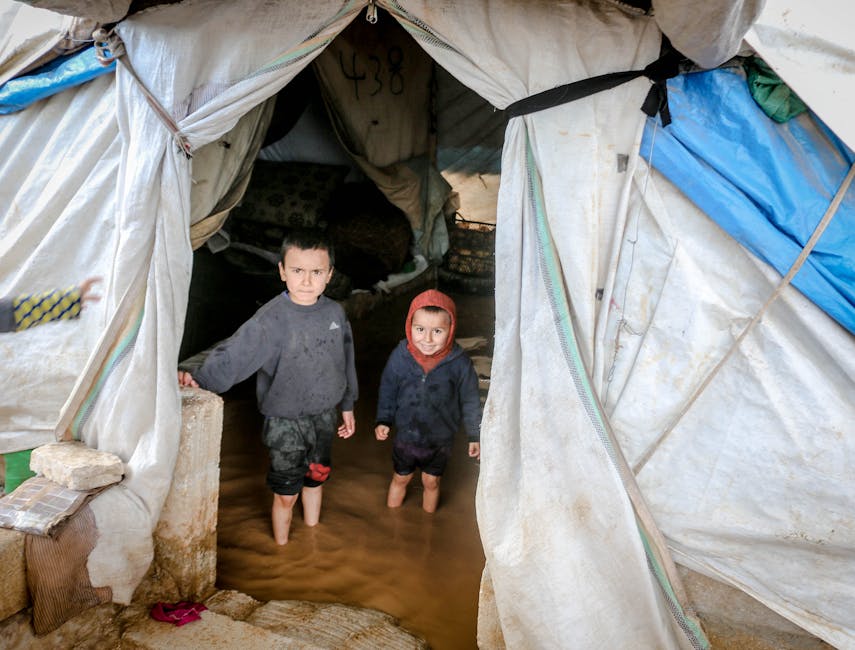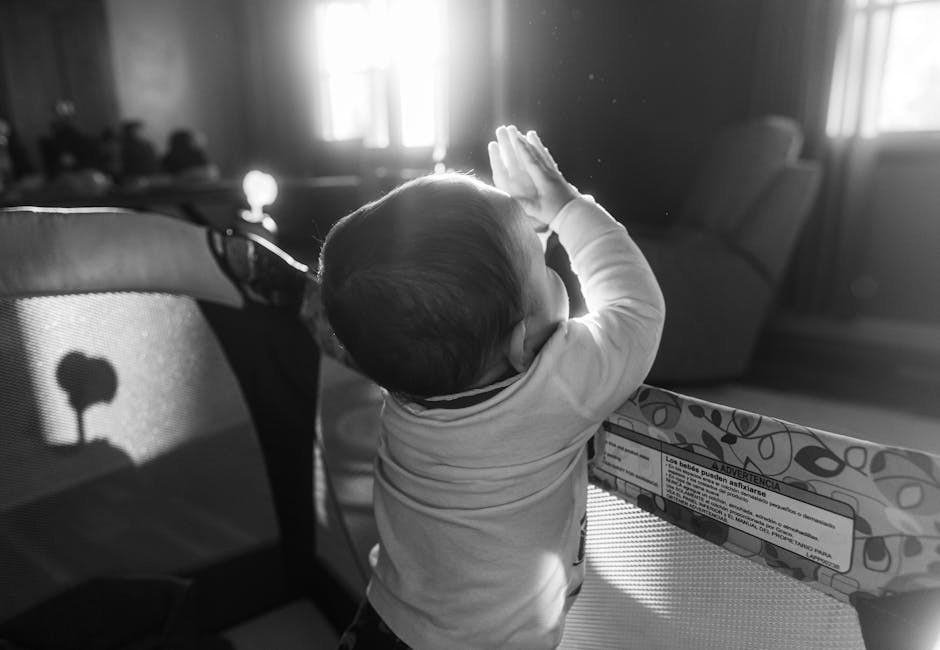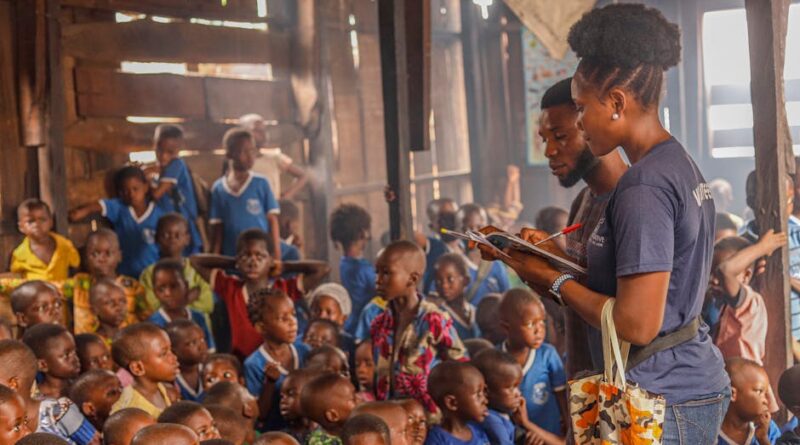The Impact of Youth Programs on Faith Development
When it comes to the development of faith in young individuals, youth programs play a significant role in shaping beliefs, values, and spiritual growth. These programs, whether through religious institutions or community organizations, provide a supportive and nurturing environment for young people to explore their spirituality, engage with their faith traditions, and develop a deeper understanding of their beliefs.
But what exactly is the impact of these youth programs on faith development? How do they influence the spiritual and religious journey of young individuals? In this article, we will delve into the various aspects of how youth programs contribute to the development of faith in the younger generation. From the historical background to the current applications and future implications, we will explore the multifaceted ways in which these programs shape the spiritual lives of young people.
The Role of Youth Programs in Building a Foundation of Faith

One of the primary roles of youth programs in faith development is to provide young individuals with a strong foundation of beliefs and values. These programs often offer religious education, spiritual guidance, and opportunities for young people to engage with their faith traditions through rituals, ceremonies, and community events. By immersing young individuals in the teachings and practices of their faith, these programs help them build a solid foundation upon which to grow their spiritual lives.
For example, a youth program at a local church may offer classes on the Bible, discussions on moral values, and activities that promote service and outreach to the community. Through these experiences, young participants not only learn about their faith but also develop a personal connection to it, laying the groundwork for a lifelong journey of spiritual growth.
Fostering a Sense of Community and Belonging

In addition to building a foundation of faith, youth programs also play a crucial role in fostering a sense of community and belonging among young individuals. Many young people struggle with feelings of isolation and disconnection in today’s fast-paced and individualistic society. Youth programs provide a space where they can feel accepted, supported, and connected to others who share their beliefs and values.
By participating in group activities, retreats, and social events, young individuals develop meaningful relationships with their peers and mentors, creating a sense of belonging that is essential for their spiritual well-being. These connections not only provide emotional support but also encourage young people to explore their faith in a safe and nurturing environment, free from judgment or criticism.
Encouraging Critical Thinking and Personal Reflection

While youth programs offer a supportive and nurturing environment for young individuals to explore their faith, they also encourage critical thinking and personal reflection. Participants are encouraged to ask questions, challenge assumptions, and engage in discussions that deepen their understanding of their beliefs and values.
For instance, a youth program may organize debates on theological issues, facilitate discussions on social justice, or encourage participants to reflect on their personal experiences and how they relate to their faith. By engaging in these activities, young individuals develop critical thinking skills, learn to articulate their beliefs, and gain a deeper sense of self-awareness that is essential for their spiritual growth.
Empowering Young People to Live Out Their Faith

Beyond building a foundation of faith, fostering a sense of community, and encouraging critical thinking, youth programs also empower young individuals to live out their faith in their daily lives. These programs provide opportunities for participants to put their beliefs into action through service projects, social justice initiatives, and outreach programs that make a positive impact in their communities.
For example, a youth program may organize a food drive for a local shelter, volunteer at a nursing home, or participate in a mission trip to a developing country. Through these experiences, young individuals not only learn about the importance of service and compassion but also develop a sense of purpose and fulfillment that comes from living out their faith in tangible ways.
Addressing Challenges and Controversies in Faith Development
While youth programs play a crucial role in the development of faith in young individuals, they also face challenges and controversies that can impact their effectiveness. One of the key challenges is engaging young people who may be skeptical or indifferent towards organized religion or traditional faith practices.
Furthermore, youth programs may also face criticism for promoting exclusivity or intolerance towards individuals with different beliefs or backgrounds. It is essential for these programs to create inclusive and welcoming environments that respect the diversity of participants and encourage open dialogue and mutual respect.
Future Implications and Innovations in Youth Programs
As we look towards the future, there are exciting innovations and trends emerging in youth programs that have the potential to transform the way faith is developed in young individuals. From incorporating digital technologies and online platforms to reach a wider audience to interfaith collaborations and partnerships that promote dialogue and understanding among diverse communities, the future of youth programs in faith development is full of possibilities.
By adapting to the changing needs and preferences of young people, youth programs can continue to play a vital role in shaping the spiritual lives of the next generation. Whether through immersive retreat experiences, virtual worship services, or innovative outreach programs, these programs have the power to inspire, educate, and empower young individuals to live out their faith in meaningful and impactful ways.
Common Misconceptions About Youth Programs and Faith Development
One common misconception about youth programs and faith development is that they are only relevant for individuals who are already committed to a particular religious tradition. In reality, youth programs are open to young people of all faith backgrounds and beliefs, providing a welcoming and inclusive space for exploration and growth.
Another misconception is that youth programs are solely focused on indoctrination or conversion, pushing young individuals to adopt specific beliefs or practices. While faith formation is an essential part of these programs, they also emphasize critical thinking, personal reflection, and the development of a personal relationship with one’s faith that goes beyond mere adherence to dogma.
Conclusion
In conclusion, youth programs play a vital role in shaping the spiritual lives of young individuals and fostering a deep connection to their faith traditions. From building a foundation of beliefs and values to fostering a sense of community and belonging, these programs provide a supportive and nurturing environment for young people to explore, question, and deepen their understanding of their faith.
As we continue to navigate the complexities of faith development in today’s world, youth programs offer a beacon of hope and inspiration for the next generation. By empowering young individuals to live out their faith, engage in critical thinking, and make a positive impact in their communities, these programs are shaping the future of faith in profound and meaningful ways.
So, the next time you come across a youth program in your community or religious institution, remember the transformative impact it can have on the spiritual lives of young individuals. Support these programs, engage with them, and be a part of the journey towards a more compassionate, inclusive, and spiritually vibrant future for our youth.




